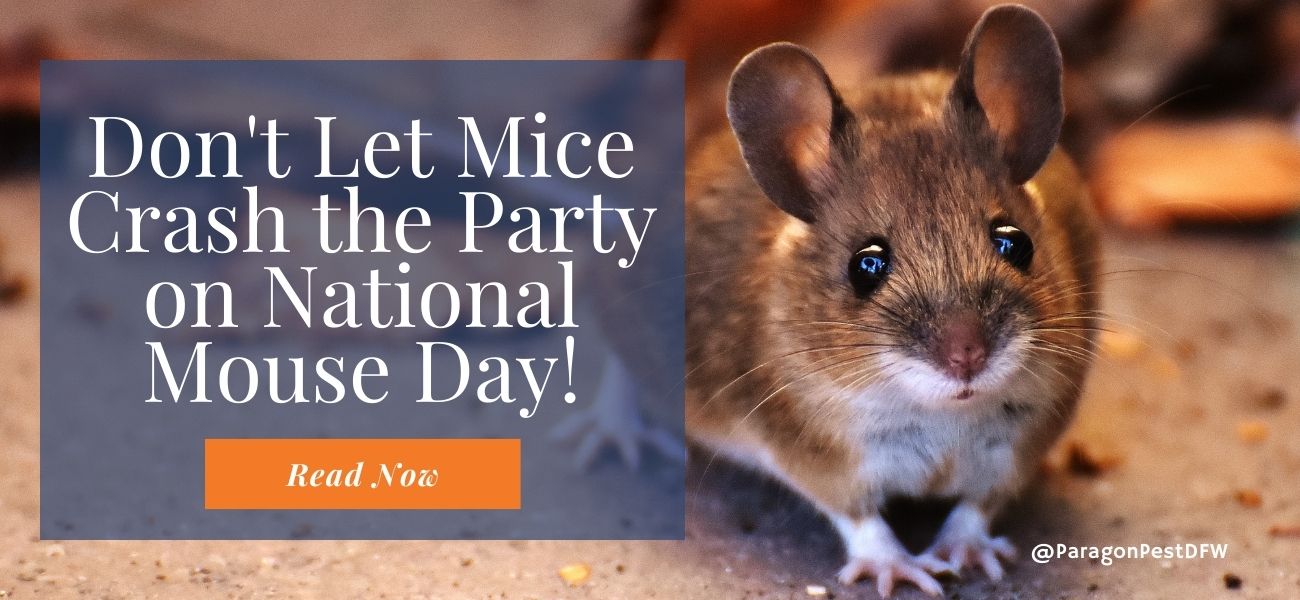Don't Let Mice Crash the Party: Celebrate National Mouse Day with Rodent Exclusion!
Today we celebrate National Mouse Day! 🐭 While some people might think of mice as cute and cuddly, they can become a serious issue if they make their way into your home. Mice and other rodents pose health risks and can cause significant damage to your property. This is why rodent exclusion is so important.
In this Friday FAQ, we’ll dive into what rodent exclusion is, why it matters, and how you can protect your home from unwelcome visitors this season.
What Is Rodent Exclusion?
Rodent exclusion is a pest management practice focused on preventing rodents, like mice and rats, from entering your home. Rather than simply removing the rodents once they’re inside, exclusion aims to seal off entry points and make your home less appealing to these pests.
This method not only provides a more long-term solution to rodent problems but also helps homeowners avoid the damage and health hazards associated with infestations.
Why Do Mice Come Inside?
As the weather cools down, mice begin searching for warmth, food, and shelter. Your home can be the perfect spot for them to escape the cold! Here are some common reasons mice make their way indoors:
Shelter: Mice seek warm, hidden areas to nest, often inside walls, attics, or basements.
Food: Easily accessible food, whether in your pantry or pet dishes, is a major attractant.
Safety: Homes offer protection from predators, making them an ideal environment for mice.
Why Rodent Exclusion Matters
Mice may seem small and harmless, but they can cause big problems. Here’s why exclusion is crucial:
Health Risks: Mice can carry diseases like Hantavirus, Leptospirosis, and Salmonella. Their droppings and urine can contaminate food and surfaces in your home, posing a risk to your family’s health.
Property Damage: Mice chew through wires, insulation, and wood, leading to costly repairs. Chewing on electrical wiring can even be a fire hazard.
Infestation Growth: Mice reproduce quickly, meaning a small problem can turn into a large infestation in no time. By the time you spot one mouse, there may already be more hidden away.
How Does Rodent Exclusion Work?
Rodent exclusion involves several key steps to keep mice and other rodents out of your home:
Inspection: The first step is a thorough inspection to identify potential entry points, such as cracks, gaps, and holes in walls, foundations, doors, and windows.
Sealing Entry Points: Once the entry points are identified, they are sealed using materials that mice can’t chew through, such as steel wool or caulk. This prevents new rodents from entering.
Sanitation: Reducing food sources is a key part of rodent exclusion. Proper sanitation practices, such as sealing food in airtight containers and keeping counters clean, help deter rodents.
Ongoing Prevention: After exclusion measures are in place, ongoing prevention is crucial. This includes regular inspections and maintenance to ensure new entry points haven’t developed.
Why You Should Schedule a Rodent Exclusion Service
Rodent exclusion isn’t just about sealing a few cracks; it’s about taking proactive steps to protect your home before an infestation occurs. By scheduling a professional exclusion service, you can ensure that your home is properly inspected and fortified against these unwelcome guests.
At Paragon Pest Control, our rodent exclusion services are designed to give you peace of mind. We perform detailed inspections, seal entry points, and provide you with recommendations to keep rodents away for good. Whether you’ve noticed signs of mice or just want to take preventive measures, we’re here to help.
Conclusion
On this National Mouse Day, take a moment to think about rodent exclusion and why it’s essential for keeping your home safe. Mice may be cute, but when they invade your home, they bring potential health risks and costly damage. With proper exclusion, you can enjoy a rodent-free home all year long.
Ready to protect your home from rodents? Schedule a free inspection with Paragon Pest Control today. Call us at (972) 435-9797 or visit paragonpestdfw.com to get started!


